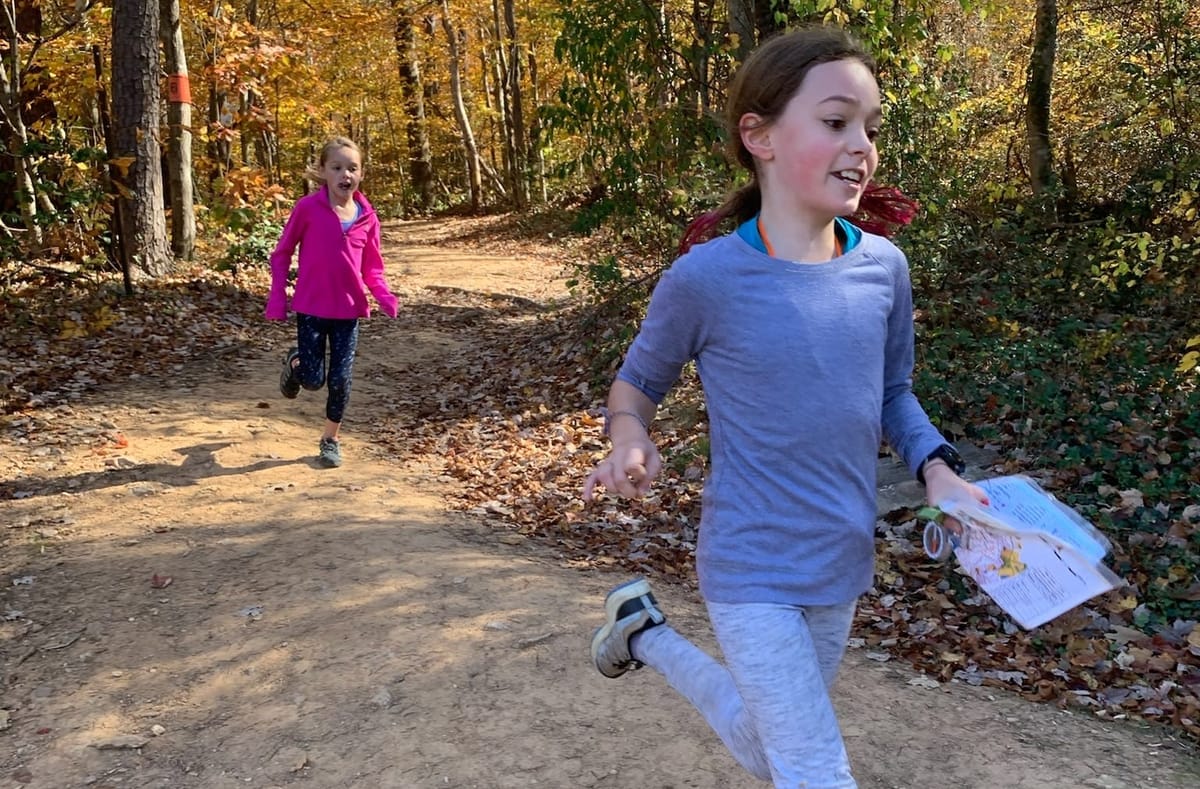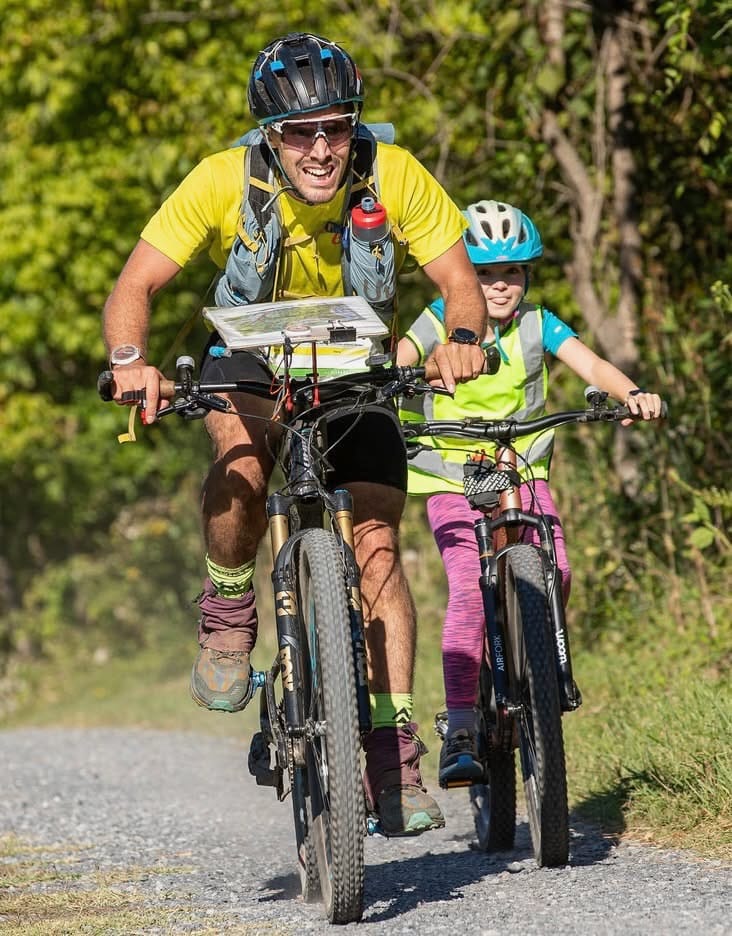Running, in the family: 10-year-old is a national orienteering champ

Not all that long ago, 10-year-old Lucy Spangler found herself lost in the woods for the first time. She held a compass and a map, but, completely turned around, she couldn’t place herself on it. Most of the leaves had fallen from the trees. There was no crunch of footfalls. No human in sight.
“It was quite hard,” she said, of that moment of realization and the moments that followed. But she didn’t panic. “It’s sort of fun to figure out how to not be lost.”
Lucy explains this matter-of-factly, a thin smile creeping across her face. Her father, Jesse, sits next to her, beaming with pride. He’s a local ER doctor and an accomplished adventure racer, part of a team that just placed second at the U.S. Adventure Racing Association National Championships.
Despite Lucy’s age, she and her dad had spent countless hours in the woods preparing for that moment. This wasn’t her first orienteering race, where competitors use a map, compass, and cue sheet to navigate the terrain and find checkpoints on the way to the finish line. It wasn’t even the biggest race she’d done.
Jesse knew this was bound to happen: “I’ve been out there lost,” he said. “I still get lost all the time.”
He hoped he’d given her the tools to navigate out of this, but as any parent of a sports-loving kid knows, practice and a game can be two very different mental places, especially when the “game” means your kid is all alone in the forest.
“We were starting to get worried,” Jesse admits. To make matters worse, he was back in Richmond at work receiving text updates from his wife, Kate. She and their younger daughter, Daisy, had just completed a shorter version of the orienteering race in nearby woods in Fairfax County’s Fountainhead Regional Park.
“I was getting nervous,” Kate tells me. “Then the race director came over to me and said, ‘Lucy is the most capable girl I have ever met. I know she is going to be fine out there. She will find her way back.”
Not only did she find her way back – after an hour and 44 minutes – she came in 2nd out of 50 or so competitors in her division, some of whom were teenagers.
Now with the benefit of hindsight, Kate said she and Jesse are “actually a little relieved” at the way their daughter was challenged. Lucy completed her first solo orienteering race when she was nine. “[She] did a lot of courses without making any mistakes. We were like, ‘OK, she got lost. She knows what to do.’”

It helps that endurance and exploration events are practically a Spangler birthright. The week before Lucy’s experience at Fountainhead, the family traveled to Scranton, Pa. for the Orienteering USA National Championships. Lucy came in second in the short- and medium-course races and first in the long course. Jesse raced all three in the elite category. Kate doesn’t love orienteering and adventure races, according to her daughter, so she knocked out Scranton’s Steamtown Marathon while her family was in the woods.
“I do not like running through spiderwebs,” said Kate, who’s done more than 10 marathons.
“Lucy will be like, ‘Oh, maybe there’s a little spider hanging on hitching a ride.’ Nope, not for me.”
Orienteering is a kind of nature-based treasure hunt. The tangible “treasures” are the orange and white flags competitors must find before reaching the finish line. But the real value, especially to the parent of a 10-year-old, goes far beyond finding “Xs” marking the spot.
“Jesse and I have always seen very big picture when it comes to sports,” Kate said. “Right now, we see [Lucy] as this kid who seems very happy and confident running through the woods with a map and compass. That’s what we want for her forever no matter what sport she chooses to do. We just hope that she can always find happiness and beauty in nature and trust in her body and mind… to carry that confidence she has in herself throughout life.”
Lucy’s teachers at Orchard House Middle School invited her to tell her classmates about her experience at nationals.
“Like nobody in my school has heard of [orienteering],” the fifth-grader said. “They let me bring in my three medals. And I brought my map. I just like to be out in nature exploring. I like to use the map. It’s like a fun challenge to add to exploring.”
But, she added, “my friends said they probably wouldn’t want to go out into the woods and get lost.”






